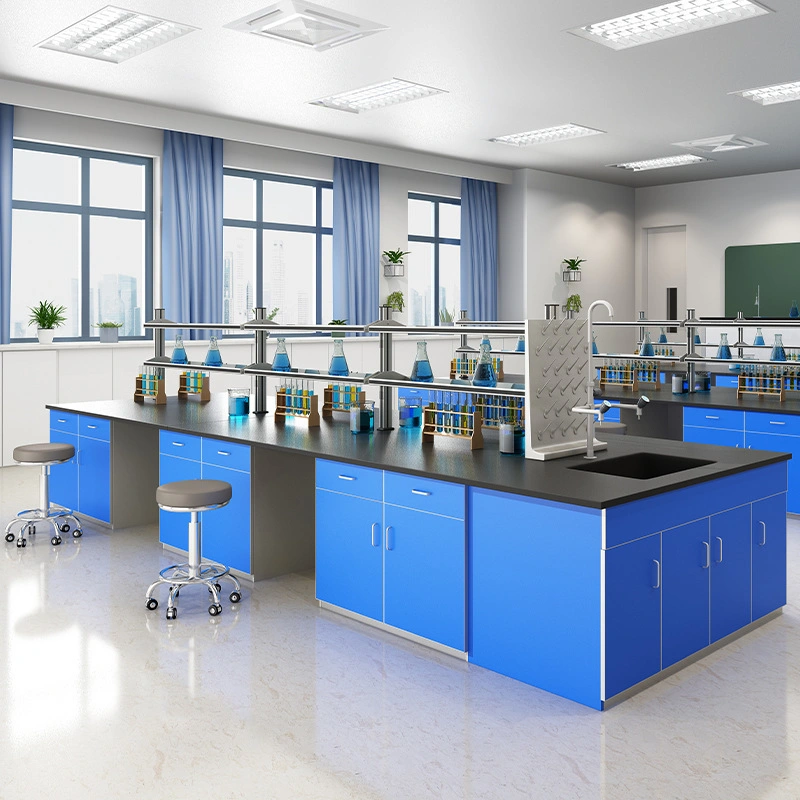In a laboratory setting, the choice of furniture and equipment is critical to ensure the smooth and efficient execution of experiments and research. One essential piece of laboratory furniture that plays a significant role in maintaining a productive and safe working environment is the antirust lab workbench. Let's delve into the details of how an antirust lab workbench can benefit a laboratory.
Advantages of Antirust Lab Workbenches
1. Corrosion Resistance
An antirust lab workbench is specifically designed to resist corrosion, making it ideal for laboratories where chemicals and reagents are frequently used. The material used in these workbenches is often stainless steel or other corrosion-resistant materials, ensuring a long-lasting and durable solution. This corrosion resistance prevents degradation over time, reducing the need for costly replacements.
2. Longevity and Durability
Antirust lab workbenches have an extended lifespan due to their resistance to rust and corrosion. These workbenches can withstand the harsh chemical environments in laboratories, resulting in a lower frequency of replacements or repairs. This longevity translates to cost savings over time, as the workbenches do not need frequent maintenance or replacement.
3. Customizable Sizes and Specifications
Laboratories come in various sizes and have unique requirements. Antirust lab workbenches are available in a range of sizes and specifications, allowing laboratories to choose the right fit for their space and research needs. This customization ensures optimal utilization of the available space, enhancing the efficiency of laboratory operations.
4. Improved Work Efficiency
Antirust lab workbenches provide a sturdy and stable surface for researchers to conduct experiments and tasks. This stability contributes to better work efficiency as it minimizes vibrations and movement during delicate procedures. Researchers can trust that their workbench will remain steady, allowing them to focus on their experiments without disruptions.
5. Cost-Effective Solution
While the initial cost of purchasing antirust lab workbenches may be higher compared to regular workbenches, their durability and resistance to corrosion make them a cost-effective choice in the long run. Laboratories can save money on maintenance, repairs, and replacements, resulting in a lower overall cost of ownership.
6. Enhanced Safety
The corrosion-resistant properties of these workbenches play a crucial role in laboratory safety. Chemical spills or accidents are common in laboratories, and with antirust lab workbenches, the risk of corrosion-related accidents is significantly reduced. This contributes to a safer working environment for researchers.
7. High-Quality Materials
Antirust lab workbenches are constructed using high-quality materials that meet industry standards. This ensures the structural integrity of the workbench, allowing it to support heavy equipment and materials without compromising safety or functionality.

8. Speedy Installation
When laboratories need to set up or renovate their workspace, the installation time of furniture is an important factor. Antirust lab workbenches are often designed for easy and quick installation, reducing downtime and allowing researchers to resume their work promptly.
Conclusion
In conclusion, antirust lab workbenches offer numerous advantages to laboratories, including corrosion resistance, longevity, customization options, improved work efficiency, cost-effectiveness, enhanced safety, high-quality materials, and speedy installation. Investing in these workbenches not only ensures a productive and safe laboratory environment but also results in long-term cost savings. To explore a variety of antirust lab workbench options, you can visit Chemistry Lab Furniture for more information.